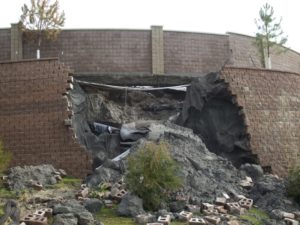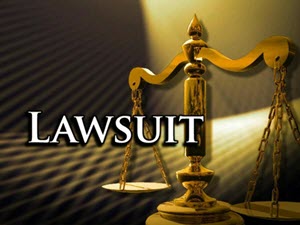ROLE OF AN EXPERT WITNESS
 Expert Witnesses are integral to many types of lawsuits, both on the plaintiff side (person suing) and the defendant side (person being sued.) For experts, it doesn’t matter which side you’re working for (or it shouldn’t matter) you have a duty to the court, the judge, or the jury.
Expert Witnesses are integral to many types of lawsuits, both on the plaintiff side (person suing) and the defendant side (person being sued.) For experts, it doesn’t matter which side you’re working for (or it shouldn’t matter) you have a duty to the court, the judge, or the jury.
An expert witness is a person engaged to give an opinion based on experience, knowledge and expertise. The overriding duty of an expert witness is to provide independent, impartial, and unbiased evidence to the court or tribunal. –RICS.org
…the expert witness has a legal duty to the court to provide objective, independent opinions to assist the court in understanding the significance of the facts before it. This duty to the court supersedes any duty that an expert witness may have to assist his or her client. Thus, the expert witness role is, by its very nature, a non-partisan one. – Ian Jones
REDUCING LITIGATION COSTS
Again, independent of which side you’re on in a case, keeping the costs down are always paramount. Even though Attorneys are scoriated for running up legal bills, those who wish to get more work in the future, have to consider the amount of billing they will have on a particular case.
Plaintiff Attorneys typically carry all the costs associated with a lawsuit, hoping to get a favorable ruling and some judgement amount to make up for all those costs and more. So, getting a clear understanding to the questions of duty, cause, and damages is important before too much time is spent on the case. The engineering expert witness can help with all three, but probably mostly with the last two.
A Defense Attorney is a lot of times hired by an insurance company to defend one of their clients, or the insurance company from a lawsuit. Having an expert to come in at the beginning to point out observed holes in the plaintiff accusations can be like getting a headstart on the case.
HELPFUL EXPERT WITNESS TASKS
So, what all can the Engineering Expert Witness do to reduce those litigation costs?
 Help in figuring out what happened and why. What is the cause? Why did the retaining wall fail? Most likely from either shoddy workmanship, water pressure behind the wall, or time decay. Why did the house flood? Why did the septic system fail? Determining the cause is the first step in figuring out if you should try to settle the case or pursue it all the way to the Supreme Court. Maybe I exaggerated on the Supreme Court. 🙂 An engineering expert witness can consult with you to figure these things out. I should also point out here that a good engineering expert will keep you from pursuing cases that are weak. Don’t look for an expert to tell you what you want to hear, hire an expert to tell you the truth – warts and all.
Help in figuring out what happened and why. What is the cause? Why did the retaining wall fail? Most likely from either shoddy workmanship, water pressure behind the wall, or time decay. Why did the house flood? Why did the septic system fail? Determining the cause is the first step in figuring out if you should try to settle the case or pursue it all the way to the Supreme Court. Maybe I exaggerated on the Supreme Court. 🙂 An engineering expert witness can consult with you to figure these things out. I should also point out here that a good engineering expert will keep you from pursuing cases that are weak. Don’t look for an expert to tell you what you want to hear, hire an expert to tell you the truth – warts and all.- Give you focus for discovery and research. If you can keep from sending blanket discovery documents, your costs for production will be less. With the Engineers help, you may be able to narrow down just what you’re looking for. Maybe you just need a copy of all survey drawings and engineering plans along with any correspondence about those surveys and plans. Maybe you don’t need every project they’ve done in the last 30 years. If the case is about flooding, the Engineer can help you know where to look and what to ask for about building permitting and flood zones. If you haven’t handled a case like this before, you should have an initial talk with the expert to get a firm grasp of the technical aspects of the case.
- Help in preparation of exhibits & visual aids. As my college professor said, a picture is worth a kilo-word. Most people can’t envision things from words. Preparation of the best visual aids to tell the story will go a long way in court, or even before court. I helped prepare a very compelling video on a slope stability case once. I played the video in front of about 12 opposing attorneys at the deposition. The case settled largely based on the video and what it would look like to the jury.
- Help with developing voir dire or deposition questions for the other expert witnesses. An expert will remember the tough questions they have been asked previously. And, they will know what the other expert should know and understand to be credible. If you have the expert help you prepare for the deposition they should be able to come up with relevant questions to ask the other expert. Before going to trial, get the expert to read the deposition of the other expert witnesses to point out any weak answers. They could help you develop voir dire and cross examination questions for the expert.
- Help with estimating the costs for repairs or damages. Engineering Experts frequently prepare estimates of costs for all types of infrastructure projects. Knowing how much that retaining wall will cost to replace, or what the repair of a septic system will cost, will help you with having asking for the right amount (plaintiff) or limiting the award (defense.)
- Reviewing recent lost cases. Maybe you’ve had a tough loss on a case due to not having an expert, or not having the right expert. Your interview for a new expert should start with this case as a sort of interview process. How would they have answered? What would they have done differently? Choosing the right expert is crucial to any case that depends on an expert witness.
 All engineers aren’t experts in all fields of engineering. Choose the engineer with the expertise in the type of case you’re trying. For example, Structural Engineers are generally Civil Engineers and their degree says Civil Engineer. But not all Civil Engineer understand or are expert in structural matters. Also, don’t ask a Mechanical or Electrical Engineer to explain stormwater drainage. Unless they have spent time doing drainage calculations they won’t be qualified to give testimony about drainage issues. Only recently have Professional Engineers (PE’s) began to be tested separately as either Structural, Environmental, Civil, Electrical, Mechanical, etc. It used to be that any PE could do any type of Engineering, as long as they judged themselves to be “competent” to practice that type.
All engineers aren’t experts in all fields of engineering. Choose the engineer with the expertise in the type of case you’re trying. For example, Structural Engineers are generally Civil Engineers and their degree says Civil Engineer. But not all Civil Engineer understand or are expert in structural matters. Also, don’t ask a Mechanical or Electrical Engineer to explain stormwater drainage. Unless they have spent time doing drainage calculations they won’t be qualified to give testimony about drainage issues. Only recently have Professional Engineers (PE’s) began to be tested separately as either Structural, Environmental, Civil, Electrical, Mechanical, etc. It used to be that any PE could do any type of Engineering, as long as they judged themselves to be “competent” to practice that type.
And, all engineering experts aren’t able to serve as expert witnesses. Being able to communicate complicated technical terms to a judge or jury is paramount. You could be the most brilliant engineer in the state, but if only other engineers can understand you, the jury won’t get it. Testifying in a deposition also often requires a calmness and patience that some folks don’t have. Opposing attorneys sometimes try to rattle the expert to see how they might come across in court. And, then in court, the expert should be almost like a teacher to the judge or jury. And, you have to do all of that without coming across as an arrogant ass. (That last part took some time for me to learn.)
